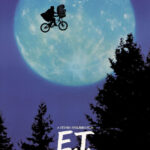Table of Contents
Unpacking ‘Henry Johnson’: Mamet Returns
With a high-profile Broadway revival of Glengarry Glen Ross currently underway, we’re once again reminded of David Mamet’s singular ear for dialogue- the same talent that earned him a Pulitzer Prize for this very play. While his sharp, staccato writing has long been celebrated on stage and screen, Mamet’s work behind the camera has drawn more divided opinions.
His latest film, ‘Henry Johnson’, is an intimate ensemble piece starring Shia LaBeouf, Evan Jonigkeit, Chris Bauer, and Dominic Hoffman. After premiering at the Aero Theatre in Los Angeles last May, the film is now available to rent through its official website.
As the old T-shirt gag goes, “But what I really want to do is direct.” Mamet’s career has followed that familiar arc: from acclaimed playwright to Hollywood screenwriter- penning Oscar-recognized scripts like ‘The Verdict’– to director, beginning with his 1987 debut ‘House of Games’, which he also wrote. It’s a transition often met with skepticism, especially for a writer so firmly associated with the stage.
Things to do:
- Subscribe to The Hollywood Insider’s YouTube Channel, by clicking here.
- Limited Time Offer – FREE Subscription to The Hollywood Insider
- Click here to read more on The Hollywood Insider’s vision, values and mission statement here – Media has the responsibility to better our world – The Hollywood Insider fully focuses on substance and meaningful entertainment, against gossip and scandal, by combining entertainment, education, and philanthropy.
The Script, The Script, and The Script
Alfred Hitchcock once said, “To make a great film, you need three things- the script, the script and the script.” That sounds promising for a writer like Mamet. However, the shift from writing to directing isn’t always seamless. As Mamet himself has shown, writing a great script doesn’t necessarily mean you can elevate it simply by recording it.
There’s a long-standing debate over whether screenwriters should direct their own work. Mel Brooks, for instance, often tells the story of how he convinced a producer to let him direct his first screenplay, ‘The Producers.’ His argument was twofold: firstly, he had already seen the movie in his head as he was writing it; and, second, he would work for scale. While the latter likely sealed the deal, the former is a legitimate justification of why someone- specifically the writer of the material- would be the best choice to direct the film.
Mamet’s visual style has always been utilitarian. It’s about shooting the script- placing the camera where it needs to be to capture the dialogue. This approach works in comedies like ‘State and Main’, a film where rhythm, repartee, and performances take precedence over cinematic flourish. But when Mamet shifts to more serious terrain- as he did in ‘Homicide’ or ‘The Spanish Prisoner’– the cracks start to show. The material, steeped in tension and ambiguity, begs for more than just efficient direction. It asks for atmosphere, mood, movement. It asks for cinema.
Mamet’s last time in the director’s chair was over a decade ago, in 2013 with ‘Phil Spector’, an HBO film that saw mixed reviews and stirred controversy more for its subject matter than its direction. And now, as he returns with ‘Henry Johnson,’ one is tempted to ask: has Mamet grown as a visual storyteller? Or is this simply another opportunity to watch the playwright-director “get the script on the screen” with minimal cinematic engagement?
WATCH THE TRAILER of the Film and the Revolution: ‘Can I Go Home Now?’
The Children Around the World Continue to Ask the question
The Write Direction
There’s also a larger question here, one that goes beyond Mamet: what happens when playwrights direct films, especially when it’s not their own script?
One might wonder how Mamet could evolve as a director by taking on a project he didn’t write- something he’s yet to attempt or, more likely, hasn’t had the opportunity to. ‘Henry Johnson’ itself is an adaptation of Mamet’s play of the same name that premiered in Los Angeles back in 2023.
A surprising trend emerges when examining other prominent playwrights turned directors. Aaron Sorkin, John Patrick Shanley, and Kenneth Lonergan- each respected in the theatrical world- have only directed films they wrote themselves. Furthermore, each has directed only three films, reinforcing the notion that playwrights often prefer to direct their own scripts, perhaps because they are so intricately tied to their words and vision. This pattern underscores the challenge Mamet, and many like him, might face in fully transitioning from playwright to director, especially when navigating someone else’s material.
Related article: Want GUARANTEED SUCCESS? Remove these ten words from your vocabulary| Transform your life INSTANTLY
Related article: Streaming Services Are Killing Movie Theaters
Pinter and the Passive Camera
An exception- one of the few I was able to find of a playwright turned filmed director- might be Harold Pinter. Pinter, the late Nobel laureate and godfather of theatrical menace, directed six screen projects. Four were adaptations or direct tapings of his own plays. But two of them- ‘Butley’ (1974) and ‘The Rear Column’ (1980)- were written by someone else: the criminally underappreciated Simon Gray.
Take ‘Butley,’ Pinter’s directorial debut. The film is not what anyone would call visually dynamic. The camera mostly sits. It watches. Occasionally, it inches forward. And yes, Alan Bates gives a tremendous performance in the title role– a performance the camera is wise enough not to interrupt. But that’s just it: the direction doesn’t elevate the film; it merely captures it. Roger Ebert noted in his 1974 review that “The camera gets closer to the characters and sees more.” What it sees is Bates’s brilliant interpretation of Gray’s brilliant dialogue (or in the case of ‘Butley,’ monologue). What it doesn’t see is any visual ambition from Pinter. The film has no sense of image beyond what the actor provides.
This isn’t to dismiss these writers or their abilities. It’s to highlight a trend. In the experience of the theatrical writer, words are everything. But cinema demands more. Cinema is about images. It’s about movement. It’s about sound- not just dialogue. A good director needs to know where to put the camera, how to use silence, how to tell a story even when no one is speaking.
When playwrights direct, they tend to prioritize the script. That seems obvious, even commendable. But it can be limiting. Film is a visual medium. A story told well in the theater may falter onscreen if it isn’t reimagined cinematically. This is where playwright-directors often struggle: they trust the words too much.
It’s also worth noting that the greatest playwrights have rarely shown interest in directing film at all. Tennessee Williams, Arthur Miller, August Wilson- none of them helmed a movie. Even when their work was adapted for the screen, it was done by experienced filmmakers. These were writers who understood their medium and respected the difference.
Of course, there are counterexamples. Martin McDonagh- a playwright of international acclaim- has shown a strong command of both forms, winning acclaim for ‘In Bruges’ and ‘The Banshees of Inisherin’. McDonagh seems to have a clear understanding of cinematic language. His films are full of visual texture and tonal precision. He doesn’t just shoot the script; he brings it to life visually.
Related article: EVOLUTION: Every Ryan Gosling Role From 1995 to 2020, All Performances Exceptionally Poignant
Related article: EVOLUTION: Every Henry Cavill Role From 2001 to 2021, All Performances Exceptionally Poignant
Related article: All Best Actor/Actress Speeches From The Beginning Of Oscars 1929-2019 | Hollywood Insider
Should We Temper Our Expectations?
For ‘Henry Johnson’?
We should expect sharp dialogue, moral conflict, and probably a clipped running time. But should we expect a compelling visual experience? History suggests otherwise. Unless Mamet has fundamentally changed his approach to directing- embracing the camera as an expressive tool rather than just a recorder of lines– ‘Henry Johnson’ may once again feel more like a filmed play than a living, breathing film.
Still, there’s always the possibility that this time will be different. A decade away from directing could have given Mamet a new perspective. Maybe ‘Henry Johnson’ is the moment he finally marries his gift for words with an eye for image. Maybe.
But if the past is prologue, then Mamet’s directing career remains a curious case: a writer with vision- just not a visual one.
Related article: Understanding the Star Wars Timeline
Related article: A Tribute to Francis Ford Coppola: One of Cinema’s Unforgettable Directors | ‘Megalopolis’, ‘The Godfather’ & More
Related article: #metoo Revolution: Powerful Questions That Need Answers
Related article: FACT-CHECKED Series: Timothee Chalamet and 32 Facts about The Young Superstar
By Joseph Tralongo
Click here to read The Hollywood Insider’s CEO Pritan Ambroase’s love letter to Cinema, TV and Media. An excerpt from the love letter: The Hollywood Insider’s CEO/editor-in-chief Pritan Ambroase affirms, “We have the space and time for all your stories, no matter who/what/where you are. Media/Cinema/TV have a responsibility to better the world and The Hollywood Insider will continue to do so. Talent, diversity and authenticity matter in Cinema/TV, media and storytelling. In fact, I reckon that we should announce “talent-diversity-authenticity-storytelling-Cinema-Oscars-Academy-Awards” as synonyms of each other. We show respect to talent and stories regardless of their skin color, race, gender, sexuality, religion, nationality, etc., thus allowing authenticity into this system just by something as simple as accepting and showing respect to the human species’ factual diversity. We become greater just by respecting and appreciating talent in all its shapes, sizes, and forms. Award winners, which includes nominees, must be chosen on the greatness of their talent ALONE.
I am sure I am speaking for a multitude of Cinema lovers all over the world when I speak of the following sentiments that this medium of art has blessed me with. Cinema taught me about our world, at times in English and at times through the beautiful one-inch bar of subtitles. I learned from the stories in the global movies that we are all alike across all borders. Remember that one of the best symbols of many great civilizations and their prosperity has been the art they have left behind. This art can be in the form of paintings, sculptures, architecture, writings, inventions, etc. For our modern society, Cinema happens to be one of them. Cinema is more than just a form of entertainment, it is an integral part of society. I love the world uniting, be it for Cinema, TV, media, art, fashion, sport, etc.
More Interesting Stories From The Hollywood Insider
– Want GUARANTEED SUCCESS? Remove these ten words from your vocabulary| Transform your life INSTANTLY
– A Tribute to Martin Scorsese: A Complete Analysis of the Life and Career of the Man Who Lives and Breathes Cinema
– Do you know the hidden messages in ‘Call Me By Your Name’? Find out behind the scenes facts in the full commentary and In-depth analysis of the cinematic masterpiece
– A Tribute To The Academy Awards: All Best Actor/Actress Speeches From The Beginning Of Oscars 1929-2019 | From Rami Malek, Leonardo DiCaprio To Denzel Washington, Halle Berry & Beyond | From Olivia Colman, Meryl Streep To Bette Davis & Beyond.
– In the 32nd Year Of His Career, Keanu Reeves’ Face Continues To Reign After Launching Movies Earning Over $4.3 Billion In Total – “John Wick”, “Toy Story 4”, “Matrix”, And Many More

Joseph Tralongo is a playwright and screenwriter who approaches storytelling with a deep respect for film’s ability to distill human behavior into meaningful moments. His personal work- i.e. his plays, screenplays, and films- leans into semantic tension, moral ambiguity, and the quiet unraveling of social dynamics- not to preach, but to parse. For him, writing is a slow excavation of truth through craft. With a background in theatre and independent film, he brings a structural precision and dramatic instinct to every film he reviews. Hollywood Insider’s mission to champion substance over spectacle aligns with Joseph’s belief that storytelling should investigate, not dictate.








